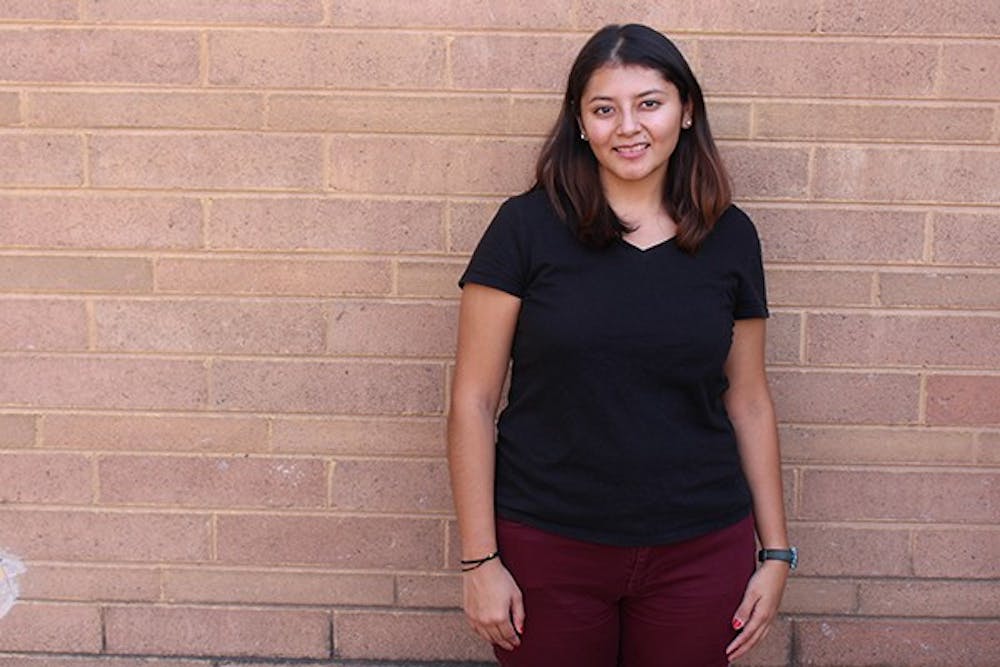ASU offers a range of scholarships to first-generation students to support them through their college journey.
Students are considered first-generation if their parents didn’t graduate from a four-year college.
Michele Daley, senior director of recruitment and first year programs at the College of Liberal Arts and Sciences, said supporting first-generation students, who might have higher financial needs, is very important and falls within the University mission of education accessibility.
“If we can give those students some money that helps solving their problem and helps them stay at the university, maybe they don’t have to work a part-time job in their first semester at ASU,” she said. “Then they have a better experience, their grades are better and that lets everything else start falling to place.”
The College of Liberal Arts and Sciences offers about eight scholarship opportunities for first-generation students. While CLAS first-generation scholarships require a minimum 2.5 GPA, financial need and Arizona residency, other scholarships can be more specific.
Students don’t need to prove that their parents didn’t receive a university degree, Daley said.
“We believe them," she said. "It’s self-reported. It’s trust.”
Daley, who was a first-generation student herself, said some things that were familiar to other students were more foreign to her, because she didn’t have anyone in the family to give her any advice.
“Looking back, I think there were some things that probably took me longer to figure out than they took my friends who were not first-generation students,” she said. “It was a bit more foreign.”
Along with the financial difficulties, first-generation students may need emotional support and guidance, because they may not have a role model in the family, Daley said.
“Part of the time, they don’t have anyone’s footsteps to follow in,” she said. “Definitely you need the money to be able to pay for college, but there’s more of that intangible thing of how do you navigate the college process.”
Biomedical engineering senior Jeanette Barillas was born and raised in Phoenix, but her parents moved to the U.S. from Mexico. Her mom has always been very supportive even though she didn’t have any university experience herself.
“She tried her best, but she couldn’t help me with advice,” Barillas said. “She was more emotionally supportive and just being there.”
Barillas said although her graduation is in May, her mom is already looking at the invitations.
“She’s so excited for me to graduate, because I’m going to be the first one,” she said. "She’s really looking forward to seeing me on the stage.”
Since her freshman year, Barillas has been receiving $3,000 per year as a part of the Doran Community Scholars Program that contributed to her academic success.
The program was established in 1997 as a result of a donation from ASU alumnus Wayne Doran and his wife, Maureen, to provide first-generation students from Phoenix Union High School District with financial, academic and personal assistance to help them attain a bachelor’s degree at ASU.
Along with financial support, the four-year-long program provides leadership opportunities in community service, civic engagement and professional development.
Barillas said the program also organizes a lot of fun events to create a network around the scholars.
“They allowed us to experience different things with ASU,” she said. “They really care about the scholars. They really want us to succeed and they try their best to provide all these opportunities to help us develop personally and professionally.”
Applied biology and French senior Alejandro Ramirez is also a first-generation student. Although ASU offers a lot of financial support, it fails to create the community around first-generation students to make them feel included, he said.
“In my ASU 101 class, every student, besides me and one other student, had parents who went to college and had degrees,” he said. “He and I felt very isolated.”
Ramirez said it’s important to let first-generation students know they are not alone.
“I feel that maybe during the welcome week (ASU) can have a welcome event for first-generation college students to encourage them to stick through the programs and tell (them) 'We are here for you if you need us,' so they don’t fall through the cracks,” Ramirez said.
Reach the reporter at kmaryaso@asu.edu or follow on Twitter @KseniaMaryasova
Like The State Press on Facebook and follow @statepress on Twitter.




